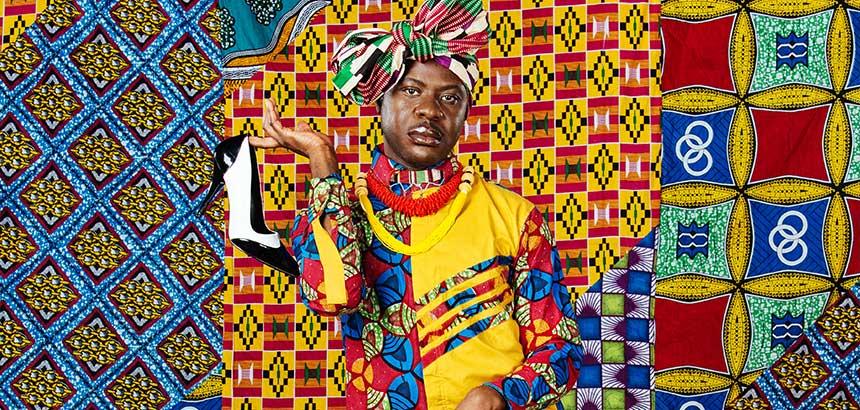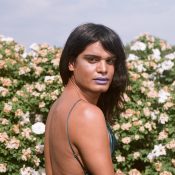“But there is no name for all of who I am.”
Sibongile speaks these words just moments before she summons light and walks away.
Does naming and claiming your truth set you free? How do you do that? As queer, trans, gender-fucking people of colour who are immigrants or refugees (or children of immigrants and refugees) and also feel bound to their religion in some way, what does it mean and what does it take – for us – to be free?
For me, there is no purpose in denying the power of gender play. When we refuse to access all our genders, we do a great disservice to our bodies, hearts, minds, and spirits. Perhaps we are not living as fully and truly as we can when we prevent the rivers of our “obaa” and our “oberima” from meeting and flowing together.
What gender-fuckers inherently know early in their lives, and what others come to know much later (and in some cases never know), is to seek pleasure. Actively. We seek our pleasures any way we can. We seek pleasure that is dirty and we seek pleasure that is dangerous. We seek the pleasure that sits deep within us – for so many of us it can be quite scary to look at – and we do this at such early ages.
For Agyeman, pleasure lives deep in their mother’s heels. For me, it lived deep in my mother’s long, thick black hair and how she would wrap it up in a towel after a shower. And what an honour it was when I was given the opportunity from time to time to comb her long, thick black hair for her.
For Agyeman and myself, we are our mothers. They live inside and outside of us. We carry them in our chests and hands, in our feet and our hair. In our eyes. We see how closely their love of god and fear of god sit next to one another, like two small boulders in a stream. We know how their bodies move, what stories live in their hips, and where they’ve come from. We know everything they’ve given up. We know what their crushed dreams sound like. We know what we sound like when we open our mouths and disappoint and fail them. Again and again. We know what that’s sounded like before we could even speak. We know so well what it takes to make them smile. And at the same time, we don’t know a single true thing about them. We carry all of that.
For Agyeman and myself, we are our lovers too. We are the people who showed us a love and appreciation for our queerness as it was just blossoming. We are also the people who fuck us without looking at our faces. We are the women who held our hands just when we needed them to, and the men who helped us understand that feeling beautiful and sexual and safe can all happen at the same time. We are the gender-fuckers we fall in love with at first sight. We are our lovers who say, “I love you” so easily and mean it so truthfully. We are the men who adore the colour of our skin because it makes them feel like they’re colonizing the countries we come from every time they come on us. We are the men who love to explore our bodies by running their hands over the lace, the silk, the leather, the nylon, the butterfly-buckle hook belt we wear.
And for Agyeman and myself, we are also our abusers. We are the little girls who feel strongly that something isn’t right when they watch the way we move our hips and hands. We are the white women, too, who feel personally attacked by the way we move our hips and hands. We are the man at whom we screamed “NO,” with our minds and our bodies, and he still didn’t fucking listen. We are every single person who took advantage of us, who lied to us, who broke our hearts and spirits. We are the people who left us too early, too abruptly, who didn’t seem to care what happens to the fish in this pond when you stop checking in with them. We are the letter, the email, the text, the phone call we received that shattered our world. We are part of the system that separates and destroys families, disposes of bodies, shames survivors, rapes the land, imprisons Black and Indigenous folks and other people of colour, kills Black and Indigenous folks and other people of colour, and doesn’t look at our faces as they continue to fuck us.
We are trapped.
So, what sets us free?
I thought I was going to die, as I was drowning in the ocean just off the shore of a beach in Bali, Indonesia. It is July 2016. I’m by myself. I don’t know how to swim, but I like danger and I go too far out. All the white tourists are splashing around and swimming just far enough from me not to notice that I’m drowning. Strange. The sun burns bright and makes my skin feel golden brown. A wave consumes my whole being, my whole man-body wearing small, tight swim shorts and bangles on my wrists. My mom doesn’t know where I am. I always wanted to get pregnant somehow before I died. I should’ve prayed more. I try to make peace with how I’m going. I breathe. The water holds me, my body, and my thoughts, and it moves me. The water pushes me, past the sea of oblivious white tourists, towards shore. I survive.
The water held me, all of me, my obaa and my oberima, and I survived. I felt powerful after. I walked in the sand, and I suppose if Agyeman were walking with me, we’d put on our red heels and swing our hips.
photo by Tanja-Tiziana


